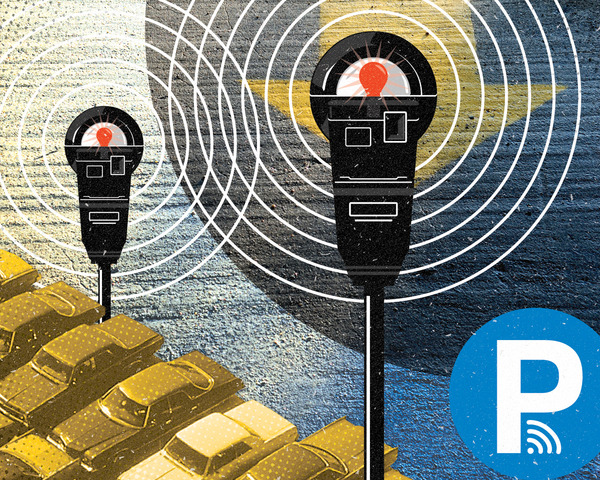The Local newsletter is your free, daily guide to life in Colorado. For locals, by locals.
Parkifi has created the ultimate win-lose situation for Mile High City drivers: The year-old company’s new parking spot sensor lets motorists know (via third-party apps) as soon as a spot is open, but it also sends a digital flare to Segway-riding ticket writers and private parking lot enforcers when your time is up.
Ryan Sullivan, co-founder and CEO of Parkifi, insists he really just wanted to design an app to help people find parking more easily, not egg on meter maids. After circling for parking in LoDo made him late to a meeting, Sullivan vented to a co-worker, Rishi Malik. In 2014, the pair hatched the idea to create an app that would pinpoint empty spaces. They soon hit a snag. “You can’t make an effective mobile app for consumers if you don’t have the data [for which spots are vacant],” Sullivan says. Parking operators—private lot owners or the city—didn’t have the information either, so Sullivan and Malik canned the app idea.
Instead, the team designed a physical sensor, which can tell when a car enters a spot and when it leaves, and commissioned Premier Manufacturing in Frederick to make it. “Our customers changed, our idea changed, our name changed,” Sullivan says. “We had a terrible name.” (So terrible, in fact, Sullivan asked us not to print it.) The Parkifi sensors—which are about the size of hockey pucks and communicate wirelessly with Parkifi’s software—are glued to the surface or curb of a parking space with construction-grade adhesive. They monitor when cars pull in and out by measuring the change your Subaru makes in the magnetic field. The sensors also communicate with the meters or kiosks, so Parkifi knows if you’ve paid and when your time is up (and it notifies the appropriate authority about both). Here—finally!—is how Parkifi starts paying off for the parkers: Its software detects the lots and streets that have openings and then sells that information to apps such as PassportParking, which can direct you to vacant spots.
Parkifi’s devices, which cost $30 apiece, are nearly 90 percent cheaper than many competitors’ prices, and that has parking operators salivating. The company’s first major installation—about 1,000 street and lot spaces in both Denver and Boulder—wraps up this month, and by May, it had raised $3 million in venture capital to support expansion across the country. Parkifi has already locked up a 1,000-space deal with an operator in California. Now if we can just sync the timer to our smartwatch, we’ll call the race with the meter maid fair.









